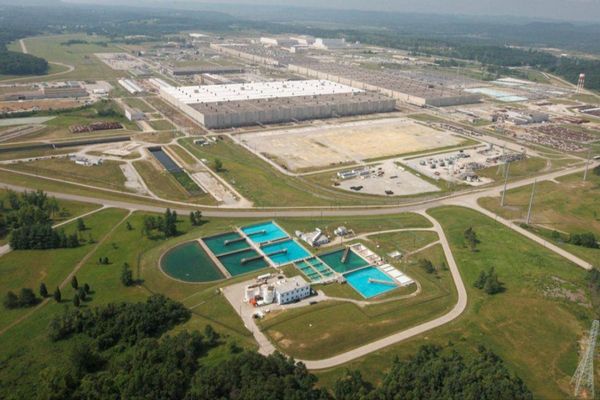
Somewhere in the Baltic Sea is a bubbling swirl that spreads for more than a kilometre, spitting natural gas into the atmosphere.
The unexplained damage which has caused the massive leaks from the two Nord Stream pipelines which pump Russian gas to Europe have been called a terrorist act, an environmental disaster and even a war crime.
Russia, which partly owns the pipes, immediately became the prime suspect.
Background
German newspaper Der Spiegel has reported that the CIA contacted German officials several weeks ago about the possibility of attacks against Baltic pipelines. Indeed, worries over an attack on undersea infrastructure go back years: in 2017, the commander of NATO submarine forces warned: “We are now seeing Russian underwater activity in the vicinity of undersea cables that I don’t believe we have ever seen.”
It was on Monday that a seismograph on the Danish island of Bornholm recorded a series of spikes in the Swedish and Danish waters where the pipelines pass. Germany then reported pressure loss on both pipelines. There are four ruptures in total — two in the Danish economic zone, two in the Swedish. German officials believe the pipelines are likely to be beyond repair. Sweden and Denmark both swiftly concluded it was a deliberate act, not an accident — though neither would be drawn on who they thought responsible.
Russia
Ukraine displayed no such caution. Ukrainian presidential adviser Mykhaylo Podolyak called the damage a “terrorist attack” and an act of aggression towards the European Union perpetrated by Russia.
The Kremlin said any implication of Russian involvement was “stupid”, but it does appear to agree this was deliberately done: President Vladimir Putin apparently told his Turkish counterpart Recep Tayyip Erdoğan on Thursday that it was “an act of international terrorism”.
Seperately, conspiracy theorists such as Fox News’ Tucker Carlson has pointed the finger at his own country. He and a few others have shared footage from February of this year featuring US President Joe Biden saying he would “end” Nord Stream 2 if Russia invaded Ukraine.
Environmental impact
Scientists say the methane leaking from the pipes has the potential to be the largest natural gas leak in history, and could result in major and highly damaging emissions. The Danish Energy Agency said this week that the leaks would equate to about 14 million tonnes of CO2, or nearly a third of Denmark’s annual emissions. But it’s hard to quantify at this stage; estimates of the leak range from 100,000 to 350,000 tonnes of methane. And it’s also been pointed out that whatever emissions are caused by this event will pale in comparison to global annual emissions.
Atmospheric chemist David McCabe, who is senior scientist at the non-profit Clean Air Task Force, told Reuters there were a number of factors that made the final impact uncertain, including the temperature of the gas, the rate of leak, and how much was being absorbed by microbes in the water on the way to the surface.
Hybrid war
Hans Tino Hansen, the CEO of Risk Intelligence, a Denmark security firm that deals with maritime issues, told Wired that this was “a very classic Russian hybrid warfare approach”. If Russia did commit the attack, it would have “complete deniability” because it partly owns the Nord Stream infrastructure (which is precisely what Russia has since said).
“They are showing that they can attack seabed energy infrastructure, with the pipelines, which then sends the signal that they can attack and destroy any energy infrastructure in Europe,” Hansen said.
The timing is also suggestive: the explosions come a day after an alternative pipeline from Norway to Poland, put in place to reduce Europe’s dependence on Russian gas, was completed. Niklas Granholm of FOI, Sweden’s defence-research agency, told The Economist that the attacks may be a show of force, a show of what Russia is capable of and willing to do to deter the EU from further sanctions.
As The Times points out, it’s not just energy that could be compromised by undersea attack but communications infrastructure, which military analysts have called “vast and in many cases indefensible”.
Future targets could include the cables that carry sensitive financial information across the Atlantic, risking a market crash, or those that supply entire regions such as Orkney, Shetland or parts of Italy with their internet access, according to one former US Navy submarine warfare strategist.







